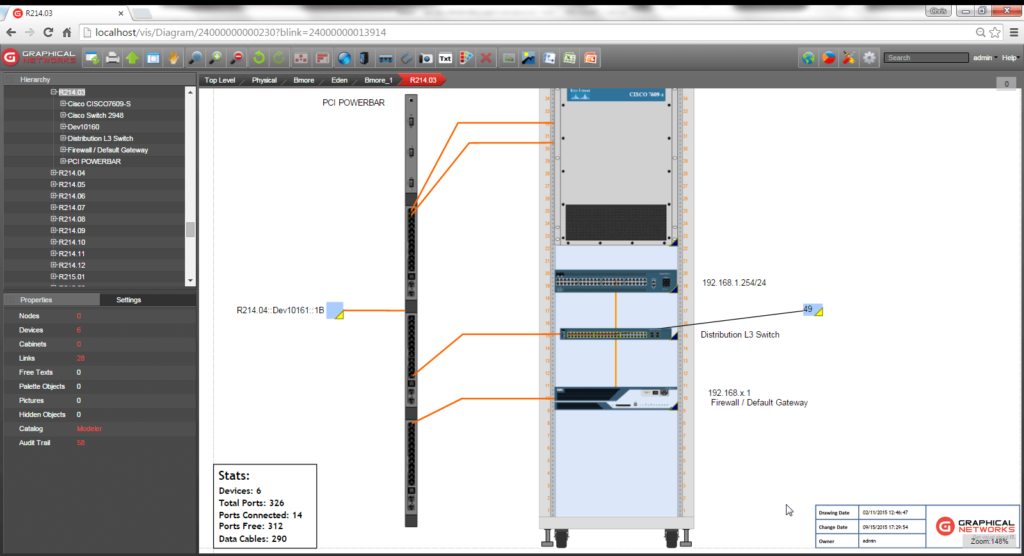 Regardless of how much large software vendors may want it to be otherwise, DCIM, aka data center infrastructure management software, isn’t — by its very nature — a one-size-fits-all solution. It can function across a number of different data center functions. Don’t just take my word for it: ask ten DCIM vendors to define exactly what DCIM is — and you’ll get ten varying answers.
Regardless of how much large software vendors may want it to be otherwise, DCIM, aka data center infrastructure management software, isn’t — by its very nature — a one-size-fits-all solution. It can function across a number of different data center functions. Don’t just take my word for it: ask ten DCIM vendors to define exactly what DCIM is — and you’ll get ten varying answers.
What is DCIM?
Because DCIM can be so broad, the most accurate way to define DCIM is this: DCIM is in the eye of the beholder. DCIM can help solve pain points in a variety of ways: which pain points does your data center need to solve? Find your pain points — and find a DCIM solution that can help you solve them — and voila: this is your (unique) definition of DCIM.
It’s fair to say, then, DCIM software really depends upon what an organization needs: cookie-cutter solutions for DCIM don’t, more often than not, meet the needs of customers. Creating solutions that solve individual pain points — while also being applicable for a large variety of customers — is a problem that DCIM vendors of all sizes, both large and small, face.
The Problem Big Vendors Have with DCIM
For large software vendors, offering DCIM software doesn’t necessarily make ‘dollars and sense’. Here’s why:
- When a software vendor doesn’t specialize in IT visualization software (such as DCIM) it’s entirely likely that they’re going to produce products that underperform.
- Because DCIM isn’t a one-size-fits-all product, sales cycles for DCIM are notoriously long — and can prove to not be worth it for larger software vendors.
- There isn’t a clear consensus on what, exactly, DCIM is. DCIM is a niche product — trying to create a product that appeals to a mass-market results in a product that doesn’t hit the mark, while trying to cater to the niche market isn’t usually profitable enough for a large vendor.
Large DCIM Vendors: A Quick Case Study
Unfortunately, many DCIM users are finding out about this problem the hard way…when their DCIM provider exits the game and leaves them hanging with a product that’s no longer being updated or supported. Take, for example, Commscope – the most recent large software vendor to bow out of the DCIM software market.
Like most things that end all too soon (…and in heartache), Commscope’s grand entrance into the DCIM market started with the best of intentions. In 2013, Commscope announced it had acquired iTracks. Commscope’s CEO Elizabeth A. Given commented that, “iTRACS can offer a holistic view of the entire multi-vendor ecosystem.”
Fast forward to April of 2017: Commscope announces that it will no longer be actively promoting, and more importantly no longer be updating, their DCIM solution. For a DCIM product that was, just a few years ago, being marketed as a product that ‘will create one of the industry’s broadest DCIM platforms’, it must be a crushing blow for the customers who eagerly signed up for just that.
Unfortunately, the epidemic of large software vendors exiting the DCIM market is, by now, old hat. Take CA Technologies’ sudden departure back in 2015: though they had been the DCIM provider for Facebook, they unceremoniously announced that DCIM no longer fit with their vision. Analysts, meanwhile, suggested that (as with most things) financially DCIM wasn’t working out for CA Technologies (not the first time the software vendor has left users hanging — take the company’s abandonment of their IT documentation product netViz, for instance).
To offer a DCIM solution that can meet everyone’s needs, and therefore one that has mass appeal, a vendor would truly need to offer everything — and the kitchen sink. To do this takes a great deal of money: large software vendors trying to control the DCIM market sank a lot of money, and fast, into creating DCIM products with mass-appeal. Unfortunately, these DCIM products often underperformed and didn’t do a single function (of the many they offered) particularly well. The ROI wasn’t there for the users…. and when the ROI isn’t there for the users, it’s probably not there for the vendors.

The Best DCIM Software for One Organization May Not Be the Best for Yours
Here’s the crux: by trying to create a DCIM product that ‘will create one of the industry’s broadest DCIM platforms’, a vendor is, essentially, trying to fail. As we discussed above, DCIM is a niche product that can’t be, and shouldn’t be, mass-produced.
Smaller vendors who specialize in certain functions (for example DCIM software that’s flexible, offers cable management and power monitoring) can give their users the best of both worlds: a superior product that doesn’t cost an arm and a leg.
If you need help choosing the right DCIM software for your organization’s unique needs, we offer a vendor-agnostic eBook that can help point you in the right direction.